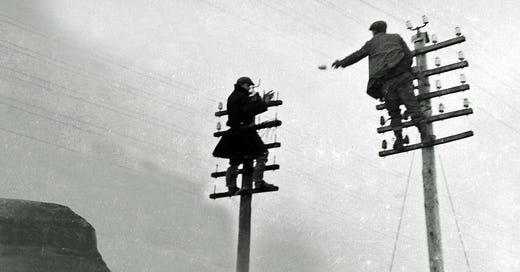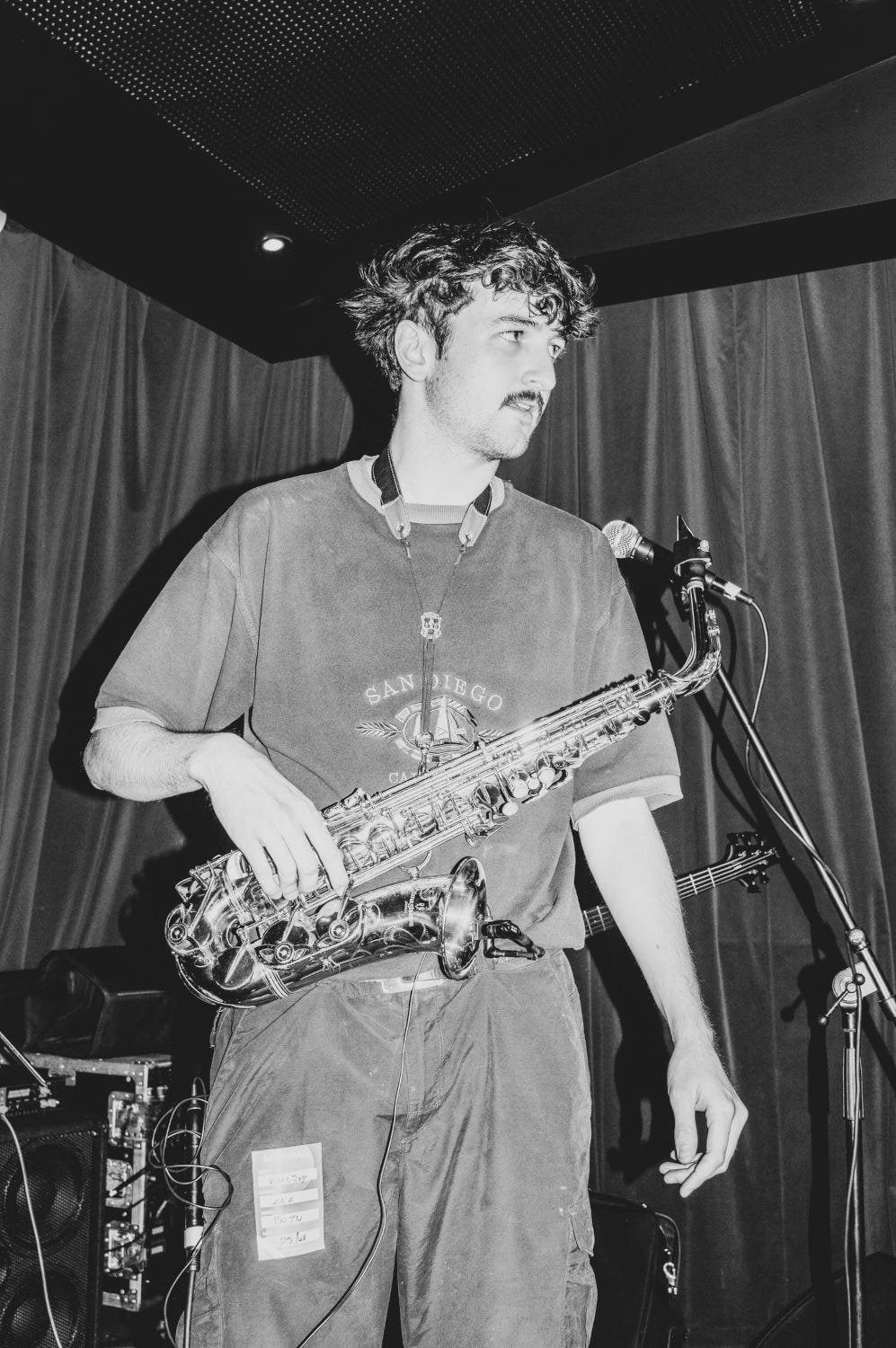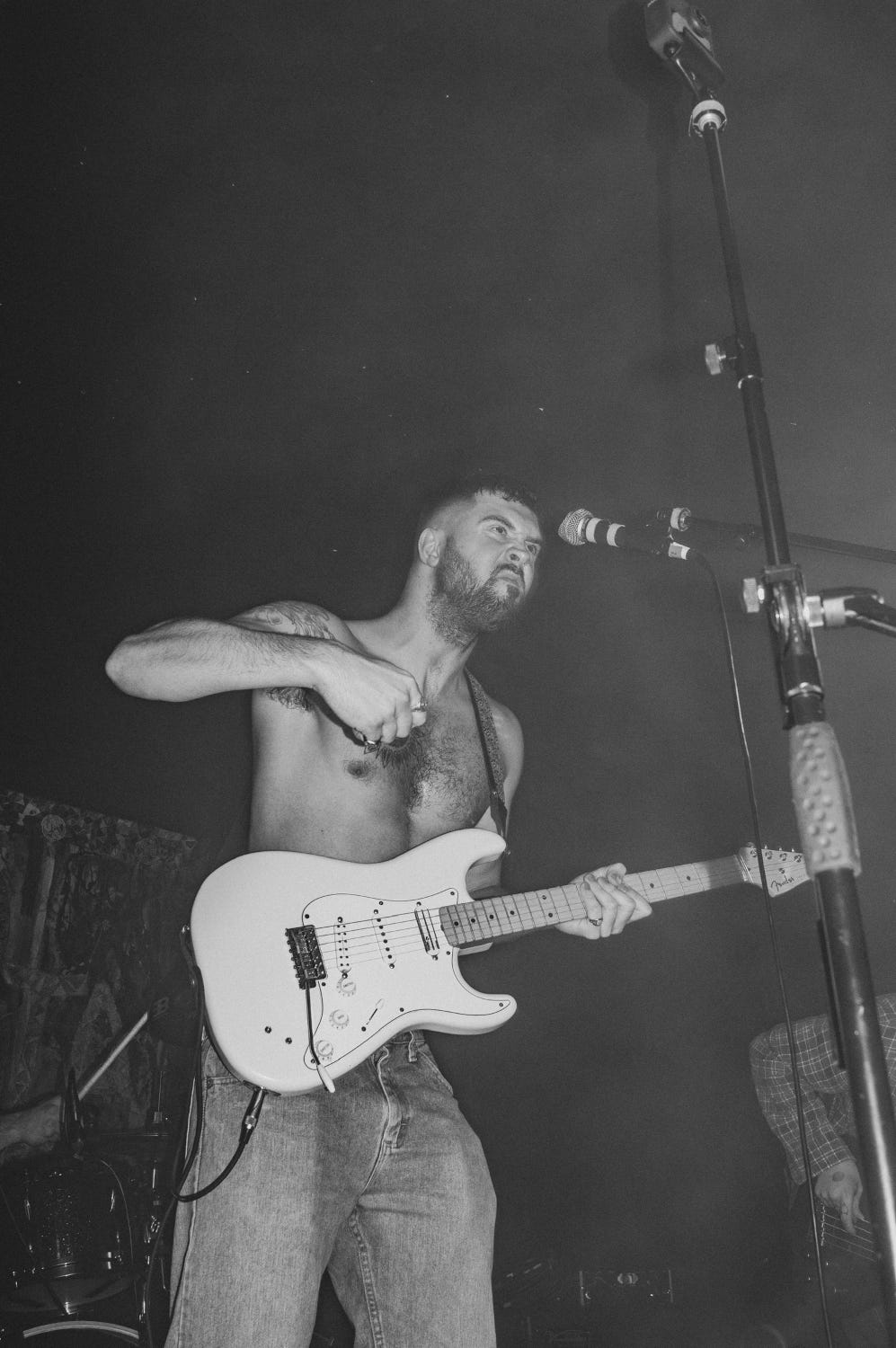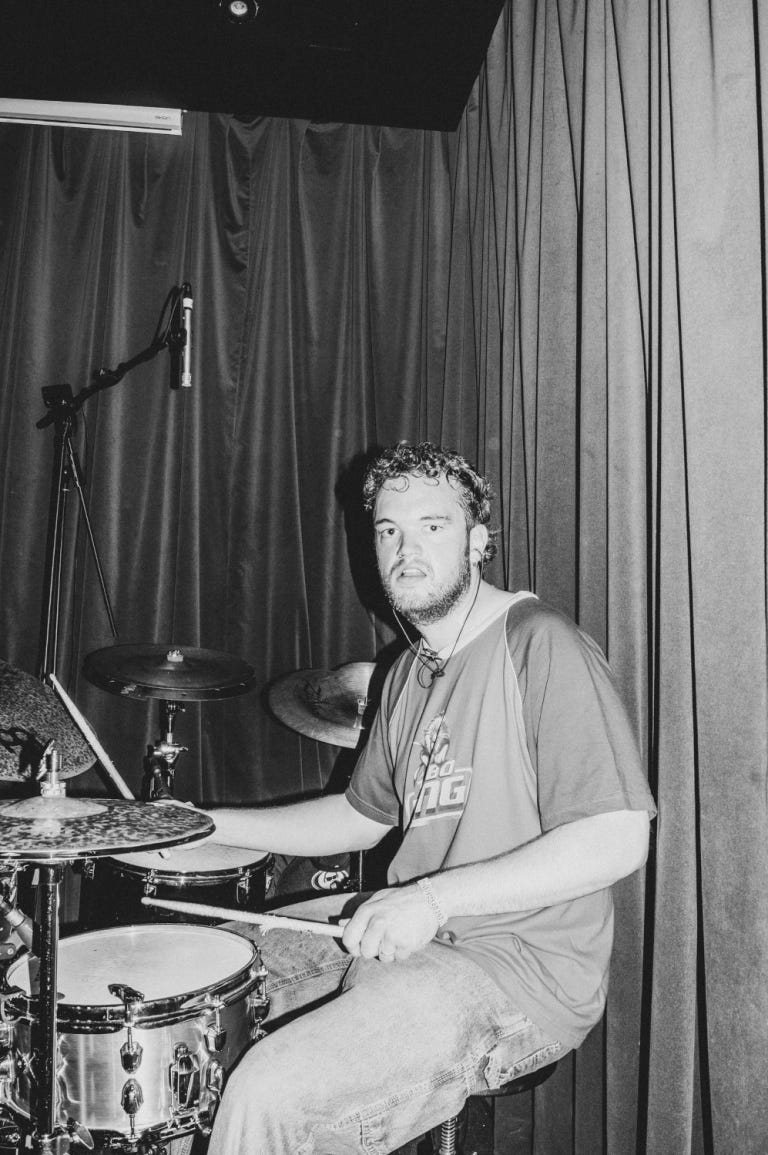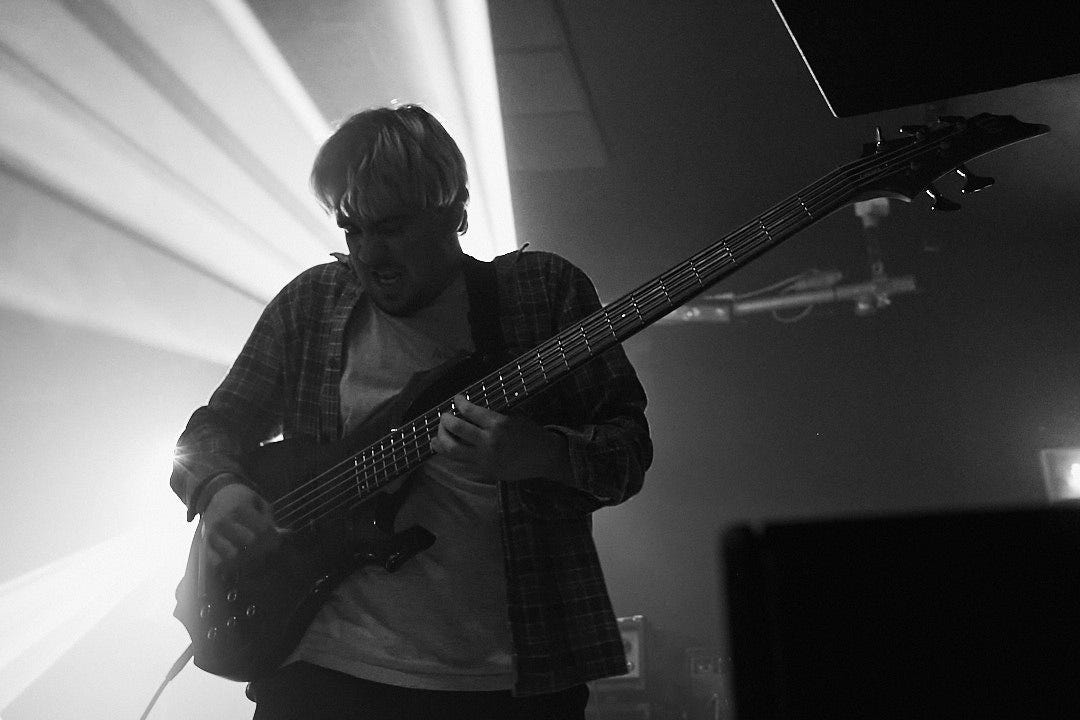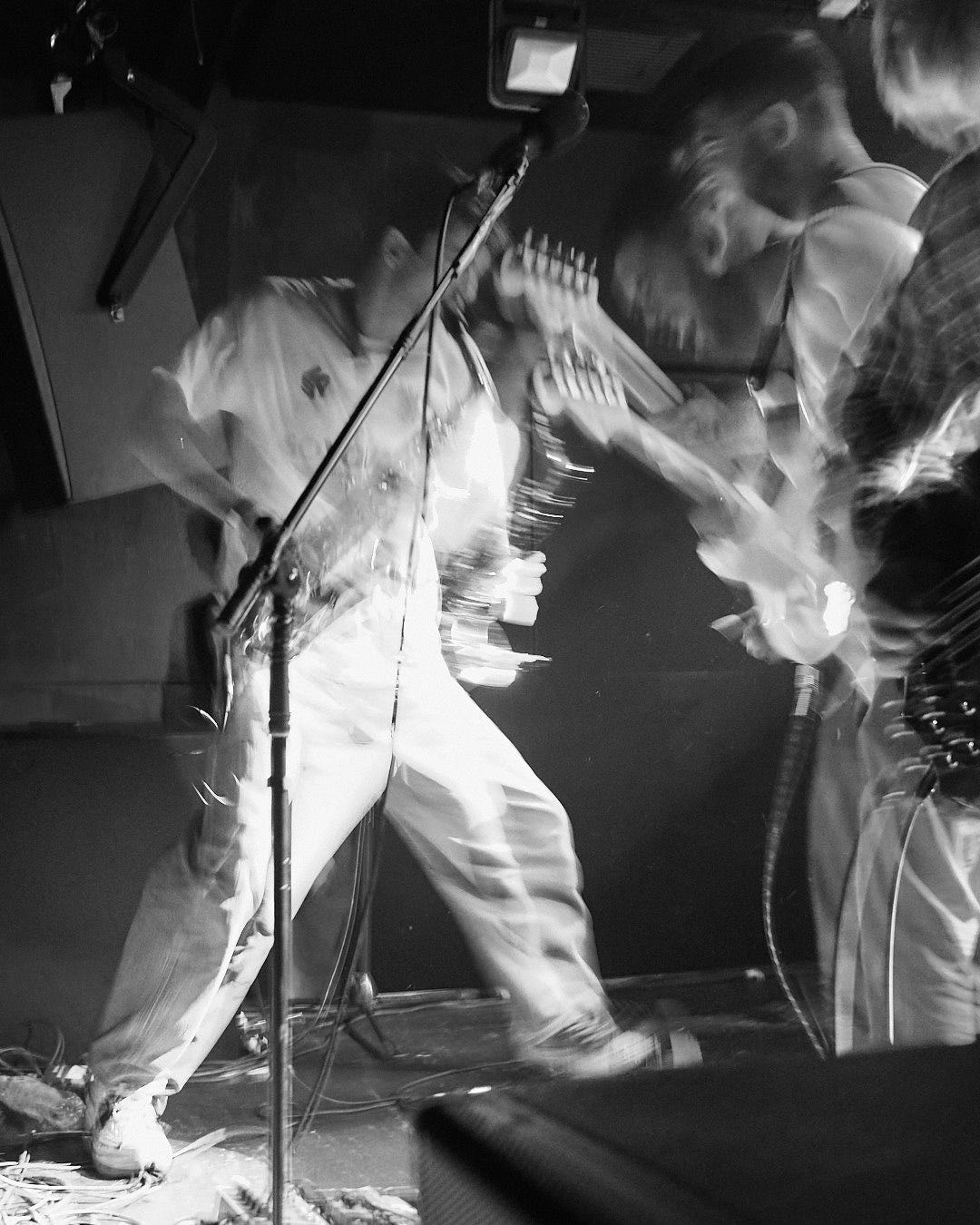MARUJA'S DEBUT EP 'KNOCKNAREA' IS CAUGHT IN THE EYE OF THE STORM
Art Rock is seeing a steady renaissance in the UK; Maruja is at the forefront of this artistic revolution.
Maruja is a Manchester-born 4-piece that is on the cusp of one the UK's most exuberant and subtly growing scenes of the last several years, one that takes the bleak environments of worlds old and new and covers them with swashes of color, breathing life into the moody and desaturated landscapes such as that depicted on the EP's cover. Knocknarea is grim, blending minimalist and modernist lyricism with spatial jazz and post-rock, culminating as one the most fulfilling projects of the year.
The opening track, Thunder, depicts the unkempt roar of nature's anger matches that of an argument or a battle, with frontman Harry Wilkinson painting vivid images from the very beginning of the song with lines such as "The rain falls like soldiers over stone rivers and barren lands," introducing to us from early on the bleak stories to be told by the band. Wilkinson's lyrics are captivating and give refreshing remarks on human engagement, reminiscent of Joy Division's iconic frontman Ian Curtis and his other post-punk contemporaries. Sonically, we meet the pulse of anxiously building drums, creeping bass, fluttering saxophone hopping about, and a waning guitar, stepping back and forth, nervous to reveal itself. This initial tension we sneak about with perfectly matches the lyricism on display, working with the images of the calm before the storm and especially with Wilkinson's screams as he shouts, "The sky is alive, with thunder!" The rising tones of each band member and their respective instruments are beautiful, with electricity filling the air, and haywire, unrelentless playing rocking the listener to their very core. Much like the natural growl of thunder, the track recedes, letting the steady pattering of the drizzling drums drive the second half, leaving space for saxophone player Joe Carroll to break the ambiance that surrounded Wilkinson's trembling second verse, all before the band cracks the air once more in unison. Thunder leaves you shaken but is only a teaser to the lightning that has yet to strike.
The energy picks up once more on the second track Blind Spot, with the fleeting saxophone skipping along with drummer Jacob Hayes through disturbed fields as both outrun the storm, only to be met with the war-stricken lyricism of Wilkinson's words, slowing their steps to a walking pace, and as Carroll's saxophone eerily pounces in and out of space, it's delayed echo only leaving a trace of its presence. Bass player Matt Buonaccorsi lets off hushed cannon fire to be heard in the distance, staying on time and the beat as Carroll creeps back to the main stage, dancing with Hayes once more. Blind Spot continues to allow Wilkinson to paint images of war-riddled grounds, as he tells tales of crossing visible borders and raining bombs, staying on point by using gloomy weather to depict war. The metaphors of war for emotional discomfort and mistrust are incredible, and feel so alive. This display is aided by the music surrounding Wilkinson's words feeling just as betrayed and pain-stricken, aching and wandering these barren, destroyed lands alongside them. Wilkinson's rising vocals, echoey shouts across empty valleys, and broken tones also help bring these somber images to life and exhibit emotion.
The Tinker takes a break from the poetic passages and allows for the instruments to do the speaking (although backing vocals do make their appearance, none are in the form of words). The five-minute epic opens with rising pads and psychedelic strings before fading into the background of the band's normally assumed positions. Wilkinson's echoing guitar chimes in, layered below Carroll's crying saxophone that fills the space left absent by Wilkinson's voice. The tread of Hayes' drums scurries in the fields, not taking up too much of the space with the blundering voices of kicks and snares, but rather keeping quiet and staying to the chatter of the closed hats of his drumset, and the occasional chime of the ride. The cinematic strings stay at a low mumble before fading out completely around the minute mark, allowing for Buonaccorsi and Wilkinson to build tension, working off each other to help raise the tensions and push Carroll to let loose a little more and stand a little straighter. The voice of the drums grows in volume, becoming more impatient and restless, waiting to explode. The subtle rise of tensions becomes more noticeable, and harder to ignore, with more layers of guitar piling on top of each other, along with the ambiance of Carroll's backing vocals. The rising tensions all feel as if they are propelling the saxophone to rise further into space, forcing it to push itself and free itself from the chains of comfort, all before slipping away down an echoey hall, giving Wilkinson's guitar more leeway to sing it's somber song before closing the track all together.
That somber song previously sung by Wilkinson's guitar picks up the emotion on the closer, Kakistocracy, playing a much cleaner tone as it eerily pans from one ear to the left, playing the same four chords over and over, slowly raising the pace as the low growl of bass and the light shake of drums roll in and begin to speed up with the guitar. Bending synths lag about, moving around the listener's ears, sounding similar to a failing car engine, adding to the discomfort brought upon us. The track refuses to meet a steady pace, speeding up every eight bars following Wilkinson's vocal entrance. Toms bounce around and the shake of the drums rises are met with a wave of unforgiving anger from the other instruments all to be halted for a mere moment by the cry of Carroll's saddened saxophone, being the only thing that breaks the emotions for only seconds at a time. This track is heartbroken, and fed up with the world around it, unable to continue to keep its anger internalized for any longer. It wishes to be released, to be heard, to be played. Even in its moments where it finally comes crashing down this discontent can be heard loud and clear. It is not here to make you feel comforted but wants to reveal the true colors of the world that are blanketed under swashes of grey and black; hidden in plain sight. Even in calmer moments to the end we never get a break, as the echoing guitar finds its final words caught in a loop that eventually changes and morphs under the sobbing saxophone, before fading into the low rumble of the bass. Wilkinson's lyricism is gritty and grim, as his low grumbles of being 'Caged by the darkness' and unsureness in what he truly knows swiftly turn into distempered screams of the lies told by what seems to be a governmental body with "Your trade deals; New hospitals." This battle that has been depicted throughout the twenty-two-minute-long EP comes to a close on the track, truly staying punk to its core, and defiant against the systems of power that hold us down. Kakistocracy is a perfect closer to a perfect EP.
Knocknarea is a necessary step toward a grand career for Maruja. They show their ability to deliver cohesive and diverse ideas at a high level, which many bands so early into their career cannot do. They are a band at the head of an artistic revolution in the UK, with fellow bands such as Squid, Black Midi, and Black Country, New Road being at the forefront alongside them. What Maruja are doing here is special and one of a kind, and I alongside many others are excited to see what the future has in store for them.

